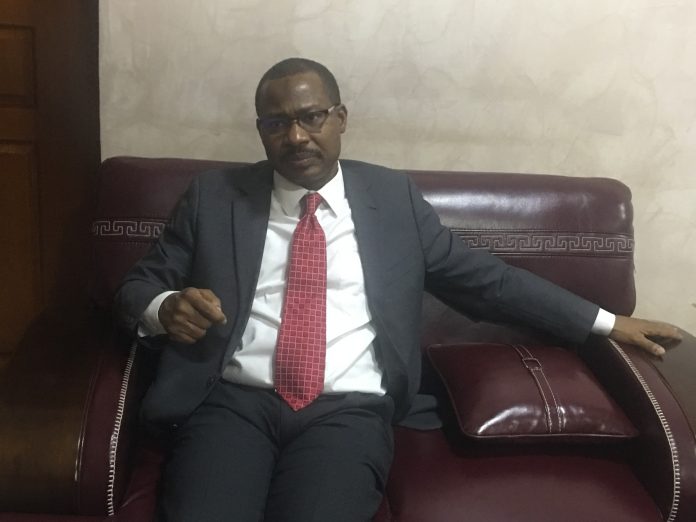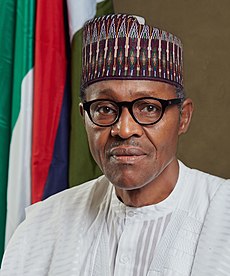Just as parents want to do everything possible to make sure their children are healthy and protected from preventable diseases, the National Primary Health Care Development Agency (NPHCDA) under the leadership of Dr. Faisal Shuaib has said it is now working round the clock to ensure adequate vaccination and immunisation of children across the country.
Shuaib, the Executive Secretary of NPHCDA, in an exclusive interview with The Daily Times in his office Abuja, said that the agency under his stewardship is working on a four-point agenda in line with President Muhammadu Buhari’s administration to deliver on its mandate.
He disclosed that only 33 percent of children in Nigeria have access to full vaccination and immunisation. The NPHCDA boss attributed the poor vaccination coverage to mismanagement of resources and ineffectiveness which he said his administration has taken genuine steps to correct the abnormalities of the past.
He assured development partners and the country that “it’s not business as usual in NPHCDA.” Shuaib said: “I came in with a four point agenda to transform a system that had variously been described as failing, poor performing and corrupt.
NPHCDA, when I resumed office was under the cloud of mistrust from development partners and donors agencies around an audit of the system by the GAVI Alliance, with alliance of different organisations for vaccines and immunisations.
“So what really happened was that a determination was made that funds and resources made available to NPHCDA were not been used in a judiciously and effective manner.”
He lamented, saying, “We live in communities some of which do not have a single presence of a health care centre or even if they have, they have been reduced to what we call consulting centres.
That is why, when I came on board, I keyed into the President Muhammadu Buhari vision of reducing this iniquity that existed amongst Nigerians in terms of accessing primary health centres that care of good quality.
“We made it very clear that we want to reduce that inequity, the gap between those who have money and who do not have money in terms of access to health care facilities.
“The minister of health has also in his policy direction from day one insisted that we should at least have one functional health care facilities in all the communities.
“Apart from the issue of funding, there were also issues of how well NPHCDA has done in achieving its core mandate of providing primary health care services and other auxiliary services. So what we did was to be very clear about the challenges that we face as an organisation.”
The healthcare expert further noted that the health care service being rendered at the community and rural levels “is nothing to write home about.”
This, he added, contributed largely to people rushing to the tertiary healthcare institutions. Shuaib also observed that one cannot get good primary health care facilities in most states lamenting, “Our routine immunisation is very poor.” He said: “In fact, it is one of the poorest in the whole of Africa.
We are at a point where only about 33% of our children are being vaccinated, only 33% of them gets full vaccination, so what happen to the remaining 67%? That means they go without the vaccines despite all the effort of the Federal Government.
“The Federal Government makes sure that these vaccines are available but we have a challenge in terms of getting these vaccines to the people where they live and work in the community and that is why we say we are strengthening the process of getting the vaccines to the communities.
This is what we call routine immunisation. “We want to finish the job of Polio so that all the resources we have been spending for polio campaigns, to look for polio vaccines and train polio staff will be channeled to something else, to other diseases like Malaria which is very common to us”.
Shuaib said that his leadership has taken some measures and “that will address the livelihood of our people that live in our communities and that is why we now prioritised the strengthening of our health care to deliver better quality primary healthcare services to Nigerians which is the first priority.
“The second priority that we identified was to strengthen routine immunisation and ensure that vaccines are available.
“The third priority was to finish the job of polio eradication. We had embarked on a journey (and I was part of this process since 2012 that really changed the narrative around polio eradication) by setting up Polio Emergency Operation Centres (PEO).
We were able to drive polio out of Nigeria except for two local government areas in Borno State that we could not access.
“Unfortunately, these were the same local government areas that led to an outbreak of polio virus in 2016. So, from a technical point of view, those were the three programmatic areas that we needed to prioritise and deliver on.
“However, what I viewed as the most important issue that we ought to address was the image of the agency, what to put in place that will make the agency more efficient as well as perform at a high level to deliver on these mandate,” the NPHCDA boss said.
He maintained that his administration will ensure prudent financial management processes, especially coming out of a situation where people had concerns about how funds have been mismanaged in the past.
It is recalled that the Global Alliance for Vaccine and Immunisation, GAVI, had asked the Federal Government to refund almost $8 million which also led them to stop funding Nigeria immunisation. But the new helmsman of NPHCDA said: “We have to demonstrate that the new NPHCDA is real by putting in place measures that will build confidence.”
One of the measures taken, according to Shuaib, include inviting a renowned international auditing firm, KPMG to audit the financial management of the agency.
He said after the audit, the KPMG recommended some actions that needed to be taken to block the loopholes. The NPHCDA Executive Secretary said: “So what are the things that we’ve done to build this confidence, you may ask.
For the financial management processes which is also one of our top priorities, we brought in KPMG, we got donors to pay KPMG to come and look at our financial management processes, to look at the loopholes and close those loopholes.
“They recommended some actions that needed to be taken to close those loopholes in the system so that it will block the chances for anybody trying to misappropriate funds.
“What we also did apart from the financial aspect, was to call in a management consulting company, it is a global recognised firm.
“We asked them to look at our human resources and see whether our people were fit for the purpose and whether we are using the best practice.
“We are also saying that we have so many smart people staying in Abuja, working in the headquarters, how about spreading them across the federation without any change in their nomenclature, take them to the zonal areas to also designate those zones as directorates.
“This is because when they go there, they are closer to the state, they are closer to the Local government areas.
As you all know, the problems are not in Abuja but in the villages and that is why we say why don’t you get people that are very experienced to these places, so that they will be able to study and understand the people; provide technical support to the states.
“In summary, one thing that I know for sure is that we cannot have the business as usual attitude”




